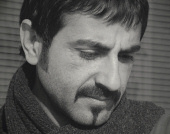PTSD symptoms
 PTSD is usually characterized by sleeping abnormalities (i.e.,
insomnia), nightmares, depression and flashbacks of a past event that has caused
the patient so much grieve. Because of their extreme anxiety
and distress about the event, they try to avoid anything that reminds them of
it. They may seem emotionally numb, detached, irritable, and easily startled.
They may feel guilty about surviving a traumatic event that killed other people.
Other symptoms include trouble concentrating, depression, and sleep
difficulties. Symptoms of the disorder usually begin shortly after the traumatic
event, although some people may not show symptoms for several years. If left
untreated, the disorder can last for years.
PTSD is usually characterized by sleeping abnormalities (i.e.,
insomnia), nightmares, depression and flashbacks of a past event that has caused
the patient so much grieve. Because of their extreme anxiety
and distress about the event, they try to avoid anything that reminds them of
it. They may seem emotionally numb, detached, irritable, and easily startled.
They may feel guilty about surviving a traumatic event that killed other people.
Other symptoms include trouble concentrating, depression, and sleep
difficulties. Symptoms of the disorder usually begin shortly after the traumatic
event, although some people may not show symptoms for several years. If left
untreated, the disorder can last for years.
Post-traumatic stress disorder can severely disrupt one's life. Besides the emotional pain of reliving the trauma, the symptoms of the disorder may cause a person to think that he or she is 'going crazy'. In addition, people with this disorder may have unpredictable, angry outbursts at family members. At other times, they may seem to have no affection for their loved ones. Some people try to mask their symptoms by abusing alcohol or drugs. Others work very long hours to prevent any 'down' periods when they might relive the trauma. Such actions may delay the onset of the disorder until these individuals retire or become sober. below is a wider representative of the symptoms of PTSD:
- Intrusive
- Dissociate states
- Flashbacks
- Intrusive emotions and memories
- Nightmares and night terrors
it’s one of the most important symptoms of PTSD criteria where the patient tries to avoid everyone and everything that might have a role in reminding him of the trauma.- Avoiding emotions
- Avoiding relationships
- Avoiding responsibility for others
- Avoiding situations that are reminiscent of the traumatic event
- Hyper Arousal
PTSD has the ability to cause a state of nervousness with the organism being prepared for "fight or flight".- Exaggerated startle reaction
- Explosive outbursts
- Extreme vigilance
- Irritability
- Panic symptoms
- Sleep disturbance




